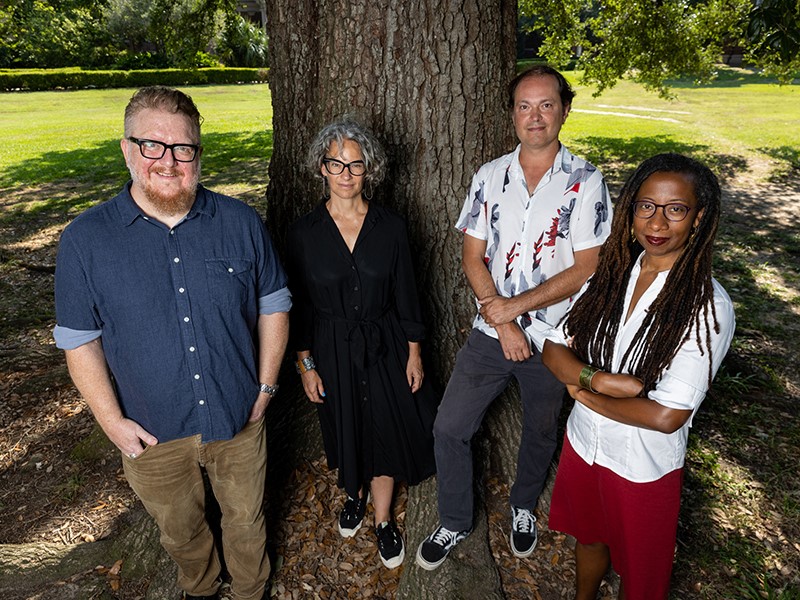A group of faculty and staff from the Tulane University School of Liberal Arts has received a five-year, $1.2 million grant from the National Academy of Sciences Gulf Research Program to create an environmental justice curriculum for Louisiana K-12 schools.
The project is being spearheaded by the Louisiana Environmental Action Network (LEAN), a nonprofit organization in Baton Rouge that fosters cooperation and communication between individual citizens and corporate and government organizations to assess and mend environmental problems in Louisiana.
All materials developed will be open source and available to teachers in Louisiana and worldwide.
“A fundamentally important element of this project is to ensure that the long-standing connections between LEAN and the communities they've partnered with over the past 40 years have the opportunities for direct input in the materials and content produced through this project,” said Christopher Oliver, senior professor of practice in Sociology and Environmental Studies and the Jill H. and Avram A. Glazer Professor of Social Entrepreneurship at the Phyllis M. Taylor Center for Social Innovation and Design Thinking. “These communities need to have their voices heard and deserve the broader recognition of the damaging consequences of the environmental injustices perpetrated upon these communities - this living, publicly available record of the often-numerous negative impacts on their livelihoods and lives.”
Oliver is a primary investigator in the project along with Rebecca Snedeker, Clark Executive Director of Tulane’s New Orleans Center for the Gulf South (NOCGS), Denise Frazier, assistant director of NOCGS, and Richard Snow, director of Tulane's Digital Media Practices Program (DMP) and senior professor of practice in the Department of Music. Oliver is also the coordinator of the Critical Visualization and Media Lab (CVML), which will be a central nexus for much of the work.
Educators from throughout the state who specialize in curriculum development around STEM will also partner with LEAN and Tulane to create the curriculum.
Tulane’s Digital Media Practices program plans a multi-year project to bring modules related to educational video game design in the context of the LEAN archive to its courses. The DMP program is a coordinated major focused on the art and practice of digital storytelling. Courses specific to the program offer hands-on experience in narrative and documentary filmmaking, interactive media, game studies, emergent journalism, podcasting and digital sound.
“I’m excited about how our faculty and students will contribute to this project. We look forward to crafting media experiences that will bring LEAN's lessons to communities across the state. The centerpiece of the curricular effort is the development of a high-concept, content-rich, educational video game based on the archive of materials LEAN has gathered over its nearly 40-year history. Partnering with LEAN on this long-term project offers DMP students and those in its coordinating departments the chance to grow in important ways over the next several years. Perhaps, most importantly, will be the growth of our students' critical understanding of how their digital media skills can help connect and inform Louisiana communities,” Snow said.
The NOCGS will support the production of the curriculum by designing content with NOCGS research fellows and activist affiliates whose work focuses on environmental justice in the region and who can help elucidate and build upon the value of the LEAN archive. NOCGS will also collaborate with leaders in the region’s energy transition from fossil fuel-based production and infrastructure to produce modules related to energy solutions that are reparative and expose students to future operations and professions.
“Through this project, K-12 students around Louisiana and the world can learn from communities who have been directly impacted by environmental injustice in this region. This collaborative endeavor will support educators in teaching how and why entanglements of colonial and petrochemical histories inter-relate and empower students to engage their dynamic climate futures. As directors of the NOCGS, we look forward to bringing our place-based practices, belief that all people have expertise to share, and knowledge of and relationships in this region to the co-creation of this curriculum,” Snedeker and Frazier added.

Original source can be found here.

 Alerts Sign-up
Alerts Sign-up